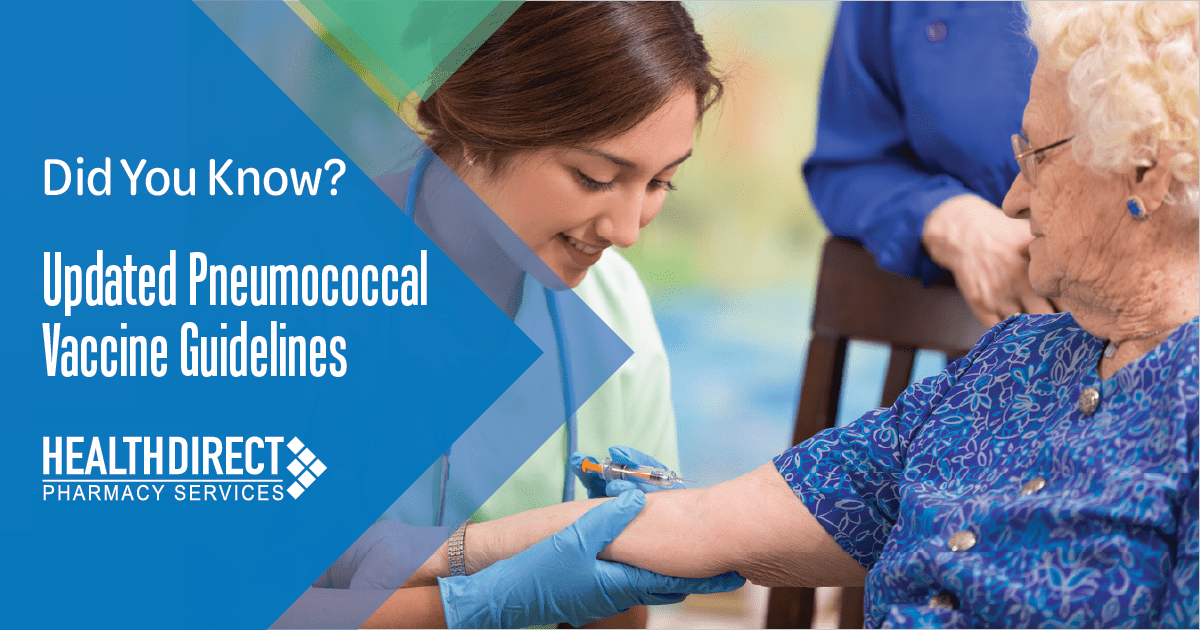CDC’s Updated Pneumococcal Recommendations for Adults
(Feb 2022)
- Two types of pneumococcal vaccines are available in the US:
- Pneumococcal polysaccharide vaccines: PPSV23 (Pneumovax)
- Pneumococcal conjugate vaccines: PCV13 (Prevnar 13) and 2 new conjugate vaccines: PCV15 (Prevnar 15) and PCV20 (Prevnar 20)
Compared to Prevnar 13, Prevnar 15 protects against 2 additional serotypes and Prevnar 20 protects against 7 additional serotypes involved in cases of invasive pneumococcal disease (IPD) and pneumonia. IPD and pneumonia are responsible for up to 40% of all pneumococcal disease and related deaths in the US.
- On January 28, 2022, the Centers for Disease Control and Prevention (CDC) published Updated Recommendations of the Advisory Committee on Immunization Practices (ACIP) in the Morbidity and Mortality Weekly Report (MMWR) for Pneumococcal Vaccines.
- The CDC revised its recommendations for pneumococcal vaccination in adults 65 years and older or aged 19-64 years with certain underlying medical conditions or risk factors.
They now recommend the following:
For those that have NOT previously received any pneumococcal vaccine or whose previous vaccination history is unknown:
| Ages 19-64 underlying medical conditions or risk factors* | Ages ≥ 65 |
Give 1 dose of PCV20
OR
Give 1 dose of PCV15 followed by a dose of PPSV23 ≥ 1 years later**
For those who have only received PPSV23, the CDC recommends you may:
| Ages 19-64 underlying medical conditions or risk factors* | Ages ≥ 65 |
Give 1 dose of PCV15 administered at least one year after the most recent PPSV23 vaccination
OR
Give 1 dose of PCV20 administered at least one year after the most recent PPSV23 vaccination
Regardless of if PCV15 or PCV20 is given, an additional dose of PPSV23 is NOT recommended.
* Alcoholism, cerebrospinal leak, chronic heart disease (including CHF and cardiomyopathies), chronic liver disease, chronic lung disease (including COPD, emphysema, and asthma), chronic renal failure, cigarette smoking, cochlear implant, congenital or acquired asplenia, congenital or acquired immunodeficiency, diabetes mellitus, generalized malignancy, HIV infection, Hodgkin disease, Iatrogenic immunosuppression (including long-term systemic corticosteroids and radiation therapy), leukemia, lymphoma, multiple myeloma, nephrotic syndrome, sickle cell disease, solid organ transplant.
** For those with an immunocompromising condition, cochlear implant, or cerebrospinal fluid leak, a minimum interval of 8 weeks between these 2 vaccines can be considered.
For those who have received PCV13 with or without PPSV23, the CDC recommends you give PPSV23 as previously recommended. Refer to December 2019 DYK or attached “Pneumococcal Vaccine Timing for Adults” chart from the CDC for specific guidance.1 & 2
See CDC’s Pneumococcal Vaccine Timing for Adults chart.
References:
- Pneumococcal Vaccination: Who and When to Vaccinate | CDC. Accessed February 17, 2022.
- Kobayashi M, Farrar JL, Gierke R, et al. Use of 15-Valent Pneumococcal Conjugate Vaccine and 20-Valent Pneumococcal Conjugate Vaccine Among U.S. Adults: Updated Recommendations of the Advisory Committee on Immunization Practices — United States, 2022. MMWR Morb Mortal Wkly Rep 2022;71:109–117.




